Twisted visions of childhood don’t come more unhinged than Ujicha’s delightfully macabre animated misadventure. Inventive genre thrills and spills abound: who knew cardboard viscera could be so disturbing?
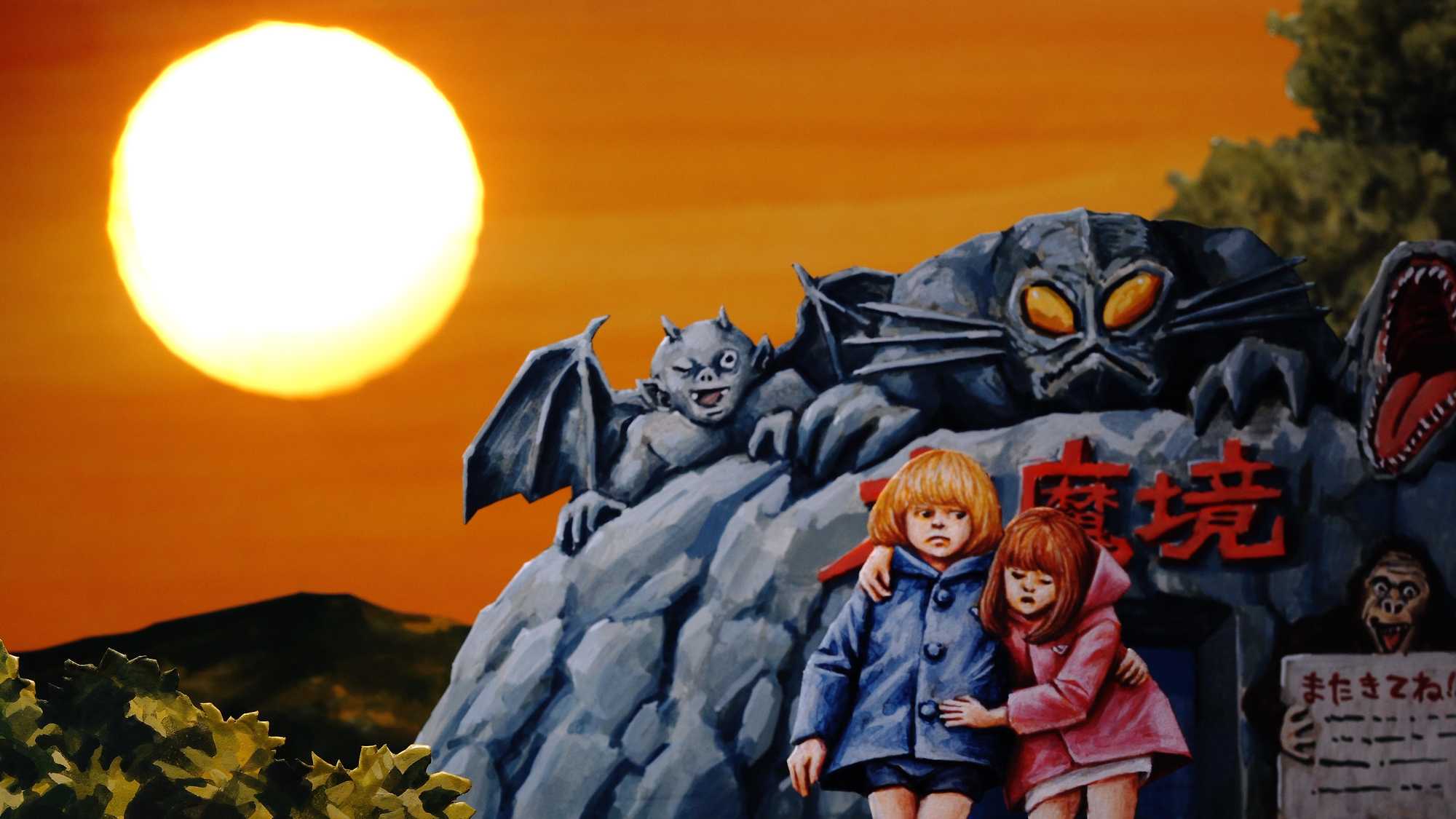
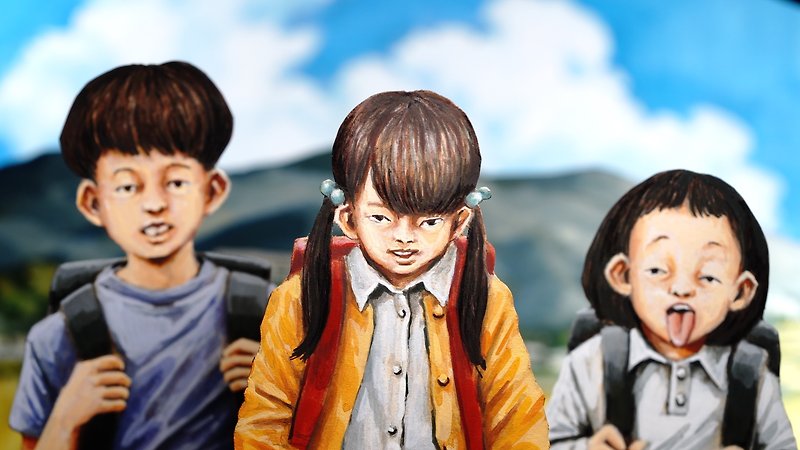
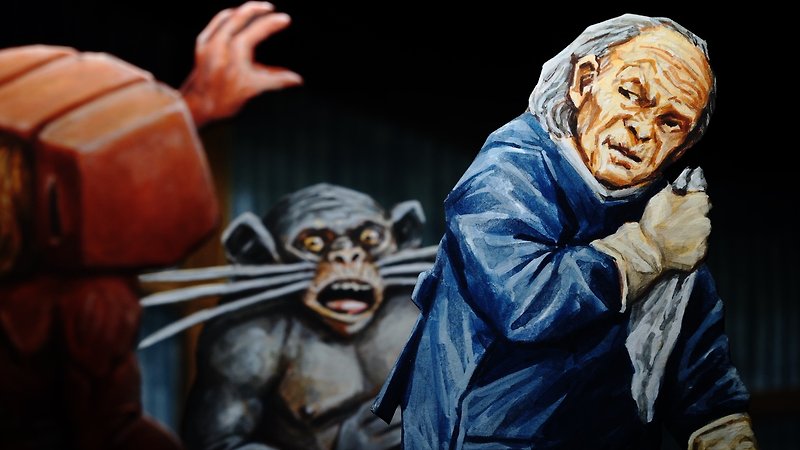
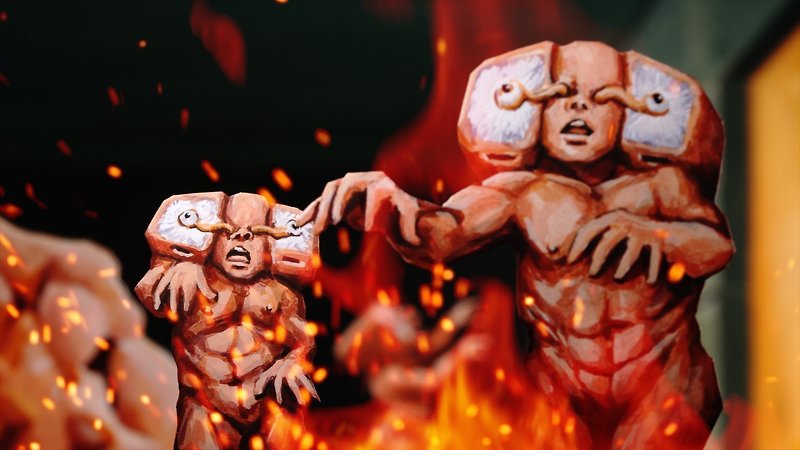
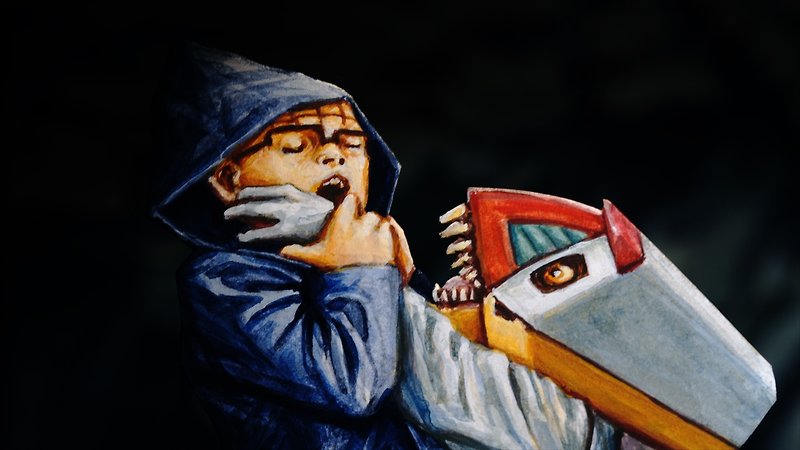
Blindsiding doesn’t even begin to cover the tonal jump that Violence Voyager… pulls over on the audience, and if you can stomach its gore and its aesthetically grating animation, there is some bloody good fun to be had.
Screened as part of NZIFF 2019
Violence Voyager 2018
Baiorensu boija
This curiously made tale of youthful wanderings wholeheartedly dives the depths of the weird and wonderfully deranged. Don’t let its cardboard construction fool you: Violence Voyager delivers a discomforting gore-factor to match Miike Takashi at his grisly best. You’ve been warned.
“Following in the footsteps of 2013’s The Burning Buddha Man, the artist Ujicha once again incorporates his ‘gekimation’ style of 2D animation, employing cardboard dioramas reminiscent of a pre-digital world to deliver a wildly imaginative childhood adventure... but one told through a grotesque lens. American student Bobby (Yuki Aoi) and local chum Akkun (Takahashi Shigeo) already exist in an uncanny world... Yet things grow stranger still after the boys venture into the mountains and stumble upon a makeshift theme park known as Violence Voyager. It seems like a low-budget scam at first but soon reveals a rabbit hole of biomechanical body-horror concealing a tragic tale – a past whose present has mutated beyond repair. Rife with nods to B-horror and kaiju fare, Violence Voyager is a brutally inventive nightmare born of a singular, disturbing vision.” — Siddhant Adlakha, Village Voice
“Japanese provocateur and innovator Ujicha’s Violence Voyager is one hell of a trip into the mind of a madman. Filmed in the super obscure, and off-the-wall animation style known as gekimation, Violence Voyager is an unforgettable experience both in terms of the insanity happening on screen, and the fascinating technical construction of the film.” — J Hurtado, Screen Anarchy